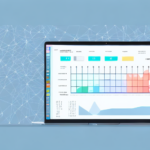Introduction to Xero and NetSuite ERP
In today's competitive business environment, selecting the right accounting and enterprise resource planning (ERP) system is crucial for operational efficiency and growth. Xero and NetSuite ERP are two leading cloud-based solutions that cater to different business needs. This guide provides an in-depth comparison of their features, pricing, user experience, reporting capabilities, integrations, customer support, scalability, and security measures to help you determine which platform aligns best with your business objectives.
Key Features and Functionality
Xero Features
- Invoicing: Create and send professional invoices with customizable templates.
- Payroll: Manage employee payments and comply with tax regulations.
- Inventory Management: Track stock levels and manage inventory efficiently.
- Bank Connections: Seamlessly integrate with multiple bank accounts for real-time financial tracking.
NetSuite ERP Features
- Order Management: Streamline order-to-cash processes with automated workflows.
- Customer Relationship Management (CRM): Enhance customer interactions and sales strategies.
- Supply Chain Management: Optimize procurement, production, and distribution processes.
- E-commerce Integration: Integrate with online platforms to manage sales channels effectively.
- Advanced Financials: Handle complex financial transactions and comprehensive reporting.
Pricing and Value Proposition
Xero Pricing Plans
- Starter: $20 per month – Includes invoicing, bank reconciliation, and expense claims.
- Standard: $30 per month – Adds quotes, purchase orders, and bills.
- Premium: $60 per month – Offers advanced features like project management and multi-currency support.
Xero's pricing is competitive, making it an attractive option for small to medium-sized businesses seeking robust accounting capabilities without a hefty investment.
NetSuite ERP Pricing
NetSuite ERP offers customized pricing tailored to the specific needs of mid-sized to large enterprises. Prices typically start at $999 per month and can escalate based on the number of users and additional modules required. While the initial cost is higher compared to Xero, NetSuite ERP provides extensive functionality and scalability that can justify the investment for growing businesses.
For a detailed comparison of pricing, refer to NetSuite ERP Pricing.
User Experience: Interface and Ease of Use
Xero User Interface
Xero is renowned for its intuitive and user-friendly interface, allowing business owners with minimal accounting knowledge to navigate and manage their finances effortlessly. Features like dashboards provide a clear overview of key financial metrics, and the mobile app enhances accessibility, enabling users to manage finances on the go.
NetSuite ERP User Interface
NetSuite ERP offers a more complex interface, reflecting its comprehensive feature set. While this provides greater functionality, it may require additional training for users to leverage its full potential effectively. Customizable dashboards and role-based access help tailor the user experience to specific business needs, enhancing overall productivity.
Reporting and Analytics
Xero Reporting Capabilities
Xero offers a range of standard financial reports, including profit and loss statements, balance sheets, and cash flow statements. These reports are user-friendly and provide essential insights for small businesses. However, customization options are limited compared to more advanced ERP systems.
According to a Software Advice review, Xero's reporting features are well-suited for businesses seeking straightforward financial analysis without the complexity of extensive customization.
NetSuite ERP Reporting and Analytics
NetSuite ERP excels in its reporting and analytics capabilities, allowing users to create custom reports and dashboards tailored to their specific business needs. Real-time data visualization and advanced analytics enable informed decision-making and strategic planning. Integration with other modules, such as inventory and CRM, provides a comprehensive view of business operations.
Industry reports from Gartner highlight NetSuite's robust analytics as a key strength for enterprises requiring detailed and actionable business intelligence.
Integration with Third-Party Tools
Xero Integrations
Xero supports integration with a variety of popular third-party applications, including payment processors like PayPal and Stripe, as well as e-commerce platforms such as Shopify. These integrations enhance the software's functionality, allowing businesses to streamline operations and maintain cohesive workflows.
NetSuite ERP Integrations
NetSuite ERP offers extensive integration options, supporting custom APIs and a broad range of third-party tools. This flexibility is ideal for larger businesses with complex integration needs, enabling seamless connectivity across various business systems and enhancing overall efficiency.
For more information on NetSuite's integration capabilities, visit the NetSuite Integrations page.
Customer Support and Resources
Xero Customer Support
Xero provides comprehensive customer support through multiple channels, including phone, email, and live chat. Additionally, their extensive online knowledge base and community forums offer valuable resources for troubleshooting and optimizing software usage.
According to user reviews on Trustpilot, Xero's support services are highly rated for responsiveness and effectiveness.
NetSuite ERP Customer Support
NetSuite ERP offers dedicated customer support via phone and email, complemented by a wealth of online documentation and training resources. Their SuiteLearning program provides structured training to help businesses maximize the platform's capabilities.
Client testimonials on Capterra commend NetSuite's support for its depth and professionalism, particularly beneficial for large organizations with complex needs.
Scalability and Growth Potential
Scalability of Xero
Xero is designed to accommodate the growth of small to medium-sized businesses. Its scalable pricing plans allow companies to upgrade as their needs evolve. However, as businesses expand and require more advanced features, they might outgrow Xero's capabilities.
Scalability of NetSuite ERP
NetSuite ERP is built to support the scalability needs of mid-sized to large enterprises. Its robust infrastructure can handle high transaction volumes and complex business processes, making it an ideal choice for companies experiencing rapid growth and diversification.
An analysis by Forrester highlights NetSuite's superior scalability as a key advantage for growing businesses.
Security Measures
Xero Security Features
Xero prioritizes data security with features such as two-factor authentication, SSL encryption, and regular data backups. These measures ensure that user information is protected against unauthorized access and data breaches.
NetSuite ERP Security Features
NetSuite ERP offers advanced security protocols, including role-based access control, comprehensive encryption standards, and compliance with various international security and privacy regulations. This makes it a suitable choice for businesses that require stringent security measures.
According to CSO Online, NetSuite's security framework meets high industry standards, providing peace of mind for enterprises handling sensitive data.
Pros and Cons of Xero vs NetSuite ERP
Pros of Xero
- Intuitive and user-friendly interface
- Affordable pricing plans tailored for small businesses
- Extensive integrations with popular third-party applications
- Strong mobile accessibility through dedicated apps
Cons of Xero
- Limited advanced features compared to comprehensive ERP systems
- Scalability may be insufficient for rapidly growing or large enterprises
- Customization options are relatively restricted
Pros of NetSuite ERP
- Comprehensive feature set catering to diverse business needs
- Highly scalable, suitable for mid-sized to large enterprises
- Advanced reporting and analytics capabilities
- Flexible integration options with various business systems
Cons of NetSuite ERP
- Higher cost may be prohibitive for small businesses
- Steeper learning curve requiring more extensive training
- Implementation can be time-consuming and complex
Conclusion: Choosing the Right Solution for Your Business
Deciding between Xero and NetSuite ERP hinges on your business size, budget, and specific needs. If you're a small to medium-sized business seeking an affordable, user-friendly accounting solution with essential features, Xero is an excellent choice. On the other hand, if your organization is mid-sized to large, requires a robust and scalable ERP system with advanced functionalities, NetSuite ERP is the more suitable option.
Consider evaluating your long-term business goals, the complexity of your operations, and the level of customization and scalability you require when making your decision. Both platforms offer free trials and demos, which can be invaluable in assessing which software aligns best with your operational needs.
Final Thoughts: Maximizing Business Efficiency with the Right ERP Solution
Ultimately, both Xero and NetSuite ERP are powerful tools designed to streamline business operations and enhance financial management. By thoroughly assessing your business requirements and leveraging the strengths of each platform, you can make an informed decision that fosters growth, efficiency, and sustainability. Investing in the right ERP solution is a strategic move that can propel your business towards achieving its financial and operational objectives.








